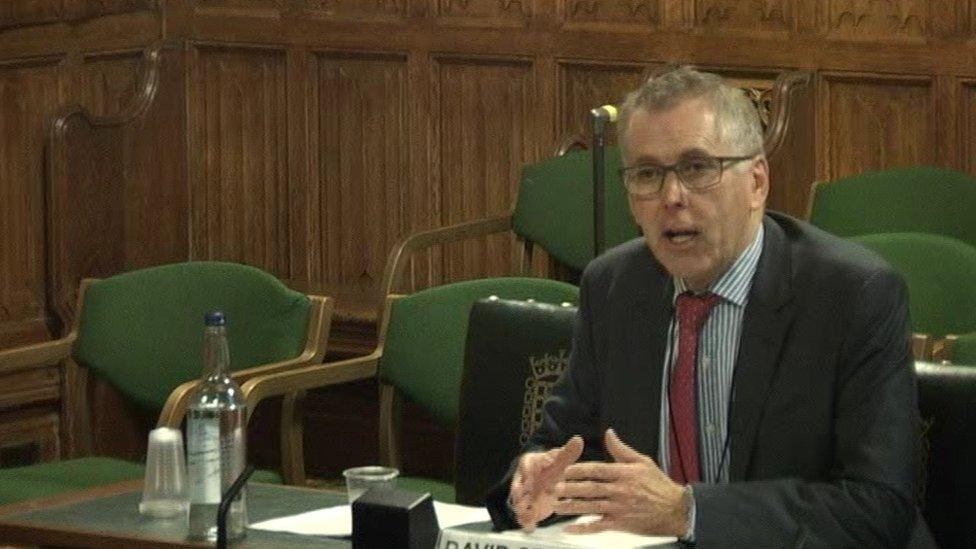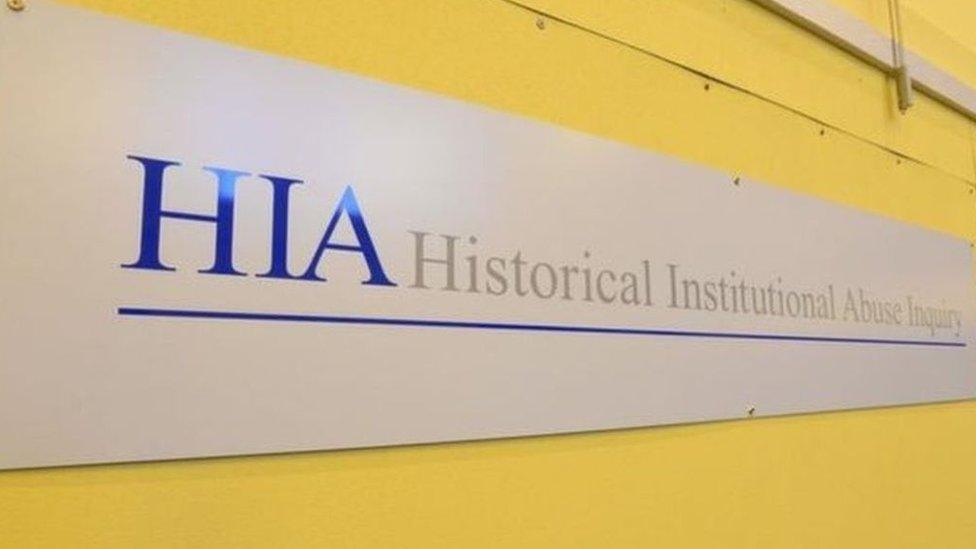Northern Ireland abuse survivors criticise civil service
- Published

The head of the Northern Ireland Civil Service David Sterling said officials are drafting a bill to enable redress for survivors of institutional abuse if the executive is not restored.
Survivors of historic institutional abuse have criticised the civil service for not making provision for a compensation scheme.
There is no official budget process under way but the Finance Department published a briefing last month setting out the issues facing the executive.
The deadline for responses to the Budgetary Outlook paper is Friday, 26 January.
It said the abuse issue is a "high priority" for the Executive Office.
But it did not indicate any funding for the redress scheme recommended by a judicial inquiry to provide victims with financial compensation.
The document said political agreement is required before that can be done "to establish the requisite structures and to take forward a financial redress scheme".

The HIA heard evidence from hundreds of people who spent their childhood in residential homes and institutions
It added that this funding is therefore not included in the financial scenarios it sets out for the future.
Preparatory work is being carried out "premised on full implementation" of Sir Anthony Hart's judicial inquiry, which included establishing a board to deal with financial redress and a Commissioner for Survivors of Institutional Childhood Abuse.
'Ironic and insulting'
In their response, the victims group Survivors and Victims of Institutional Abuse (Savia) described the department's argument as "ironic and insulting".
They point out that a number of the options laid out in the budget document relate to a draft programme for government, which was never agreed by the executive.
They argue that there is more evidence of cross-party support for implementing the abuse inquiry findings than there is public backing for the draft programme for government.
Yesterday, the head of Northern Ireland's civil service, David Sterling, told MPs he will ask the Secretary of State Karen Bradley to bring forward legislation to enable redress for survivors of institutional abuse if the executive is not restored.
Mr Sterling confirmed that officials are already drafting a bill on the issue.
However Savia said they are disappointed that such legislation will not be in place before the summer, claiming that more than 60 victims and survivors have died since the process of getting to the truth was initiated.
The inquiry, which was chaired by Sir Anthony Hart, published its findings in January 2017.

Extracts from Savia letter
We are extremely disappointed that no mention of budgetary provision is made in the Budgetary Outlook document, despite insistence that is "remains a high priority".
The reason given for failing to include a budget line in the document is premised on the fact that "political agreement is required on the identification of funding to establish the requisite structures and to take forward a financial redress scheme."
We find this statement to be ironic and insulting given that the two out of three scenarios provided on each departmental allocation are subject to political agreement as they relate to the draft Programme for Government - a document which itself has not been formally agreed by the Executive, yet it is central to the Budgetary Outlook.
We do not accept the excuses that have been offered time and time again by the Secretary of State, the Civil Service, and indeed our local politicians whose absence from Stormont is the ultimate cause of the failure for this issue to be properly dealt with.
How many more times can we make this point: victims and survivors don't all have the luxury of time to wait on the resolution of political challenges beyond our control.
We are demanding that provisions be made in this year's budget to support the very real and urgent needs of victims and survivors whose suffering has been prolonged and heightened as a result of a catalogue of failures across government and the political institutions.

- Published24 January 2018

- Published24 January 2018
